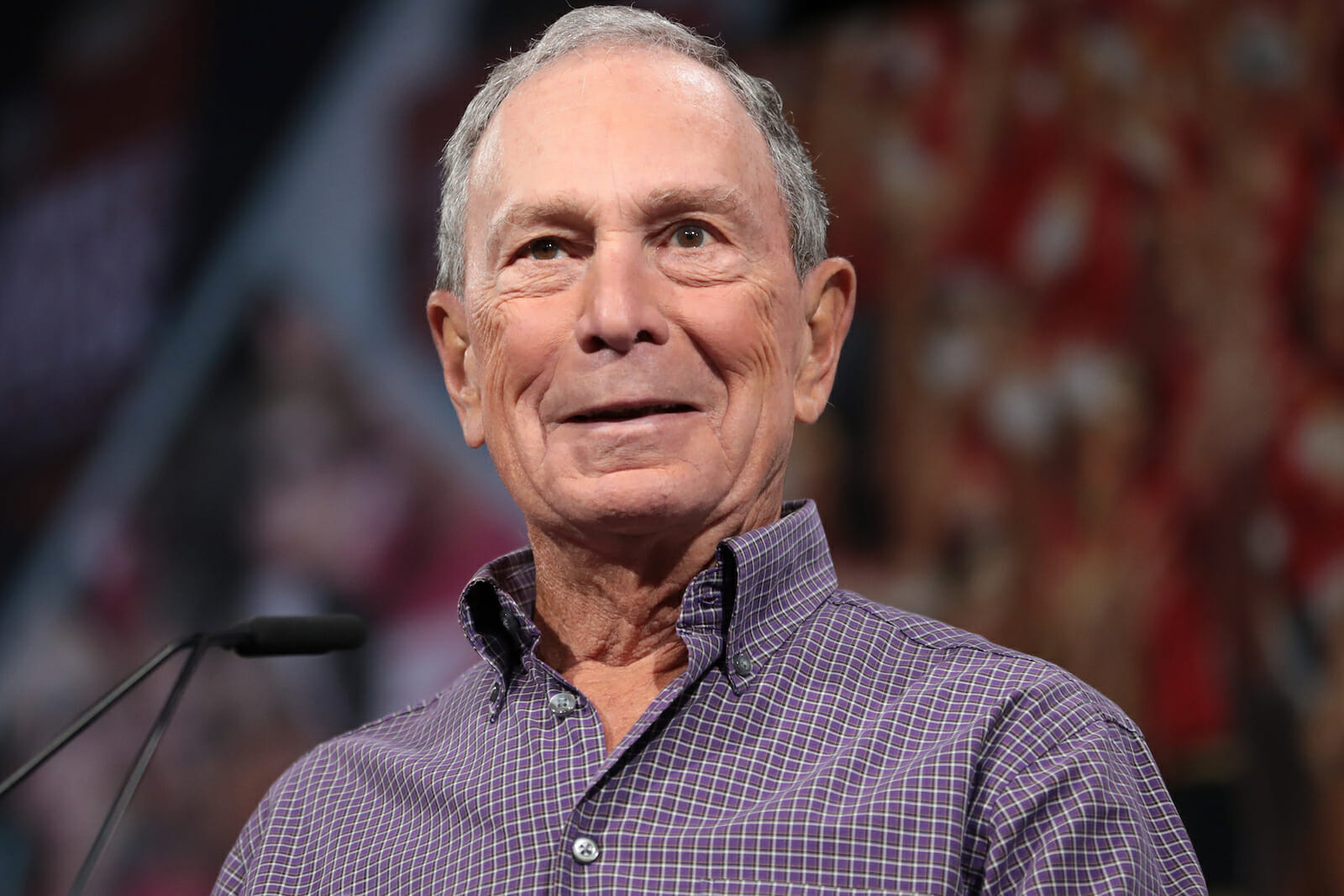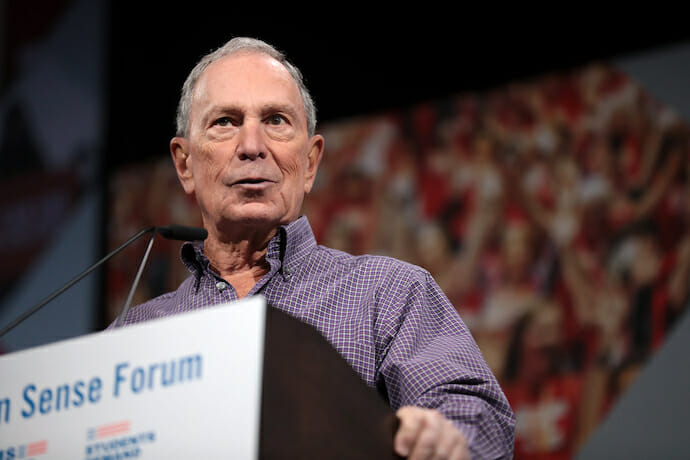
Politics
The Bloomberg Factor: Authoritarianism, Money and U.S. Presidential Politics
Political rottenness may be bottomless. Consider the following description of a political aspirant for the White House, this person being from the Democratic Party. His “liabilities as a political candidate are so glaringly obvious that it’s easy to dismiss his presidential bid as a vanity project.” The author goes on to describe what can only be seen as a template of sorts. “He is utterly devoid of charisma, has no real organic base in the Democratic Party, and is a viable candidate only because he’s filthy rich and is willing to inundate the race by opening up his nearly limitless money pit.”
At a pinch, Jeet Heer, writing in The Nation, might have been describing Donald Trump in 2015. But this treatment is afforded to the cash-heavy Michael Bloomberg, accused of representing “another strand of authoritarian politics.”
Heer has a point, but it is a prosaic one. The nature of most political systems is that they produce a type of political candidate deemed acceptably pestilential. The danger for US presidential politics was long in coming; that the Founding Fathers, in their vision of republicanism, would fail to prevent the next emperor from emerging. Restraints, fetters, and oversights have long been the stuff of this idea: you cage the emperor-to-be, render the figure accountable. The modern presidency, with all the accoutrements of the entangling state, has achingly chafed against them.
Abraham Lincoln can be seen to be a pioneer in this regard, and almost peerless in terms of how he expanded the position of the executive power in the US. As the civil war against the South bloodied and bled the state from April 1861, he came to be seen as authoritarian and loose with the Constitution. He self-arrogated one prerogative after another, usurping Congressional powers in ordering the blockade of Southern ports, initially calling for 75,000 militia troops and a further 40,000 three-year volunteers. Then came the suspension of habeas corpus. As with previous figures accused of having Caesar’s pretensions, he was assassinated.
The Trump presidency has certainly been a cause of alarm for those fearing the onset of a new tyranny. The Donald has been casually venal in office, outsourced its functions for personal gain and treated his position as a theatrical extension of a social media presidency. The distinction between political manipulation deemed acceptable by the Constitution’s framers, and abuse deemed unconstitutional, is currently being tested and is unlikely to make the distance.

As the impeachment drama unfolds in the House, the clutch of Democratic candidates has done nothing to suggest that this trend in American politics is shifting. Messy, discordant and disparate, the field remains cluttered. The departure of Kamala Harris, and the entry of former New York mayor Bloomberg, was a strong suggestion of things to come, a sort of social Darwinian culling in the offing. Harris might have been an identitarian’s identity-kit politician, an antidote against white-male chauvinism, but her positions were unclear and elastic. Her departure from the race, however, threw up an inescapable fact: to run for the White House entails having pockets so capacious as to be obscene.
As Harris campaign manager Juan Rodriguez noted in a memo, “To effectively compete with the top campaigns and make the necessary investments in the critical final 100 days to the [Iowa] caucus, we need to reduce expenditures elsewhere and realign resources.” This is the language of budgeting, corporate outlays, and management, a far cry from presidential majesty.
Bloomberg’s bid furnishes a similar claim. It is an announcement that the only way of removing a wealthy white male with authoritarian tendencies is to supplant him with another, even wealthier one. His candidacy is already teasing out gushers and admirers. Michael Starr Hopkins, a promiscuous strategist who worked with the presidential campaigns of Hillary Clinton, Barack Obama, and John Delaney, insists that Bloomberg cannot be dismissed out of hand. “In a normal election cycle, I would not give much attention to his candidacy, certainly not as a Democrat. But as we all know, this is not a normal election cycle, and the fallout from the re-election of Donald Trump would only enforce his authoritarian tendencies.”
Hopkins evaluates Bloomberg and finds an impressive figure able to defeat Trump. “He is better than Trump in every way. Successful businessman, check. Dedicated philanthropist, check. Effective politician, check.”
This flurry of enthusiasm for the improved Trump – the one who actually succeeds at the President’s pretensions – has not been in a minor key. Thomas Friedman, holding forth from the New York Times, was “glad” Bloomberg had stuck his oar in. “Today ‘billionaire’ has become a dirty word and a disqualifying status for many in the left of the Democratic Party. To me, that is as nonsensical as dismissing Elizabeth Warren as a ‘communist’ who wants only to confiscate your money.”
The non sequitur remains Friedman’s glaring strong suit, but deployed in this way shows how far gone the state of US politics is. He digs into the usual reserves of justification as to why a voter might go for the wealthy authoritarian with Caesar’s ambitions. Bloomberg was “not just some wealthy dude who made his money betting on derivatives on Wall Street and now pops off about the need to cut taxes.” He “risked everything”; he showed pluck in starting “a business that took on giant incumbents and outperformed them and boosted productivity.”
Fellow New York Times stable mate Bret Stephens is of like mind, and method. If you accepted the proposition that “trouncing Donald Trump is essential to the preservation of liberal democracy, then it won’t do to cross fingers and hope he stumbles.” Bloomberg’s addition “would be a gift to Democrats, the country and the world. Sneer at it at your peril.”
Bloomberg is pushing his own credentials by boosting those of the incumbent. But he does so using the very same language that failed to convince voters against Trump’s merits: well-cured experience and ample readiness for office. “I think Trump is getting stronger and I think he would just eat alive the candidates.” His rivals, he continued to explain to CNN’s Christiane Amanpour, lacked “practical” plans and “management experience and the President’s job is a management job.” So the logic of the moneyed authoritarian, the executive bully in politics, comes full circle. Trump’s legacy, on some level at least, is assured.
